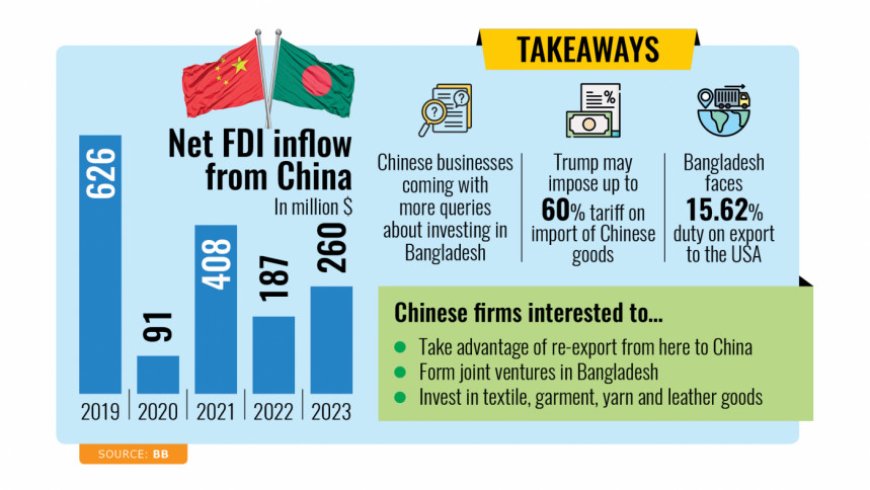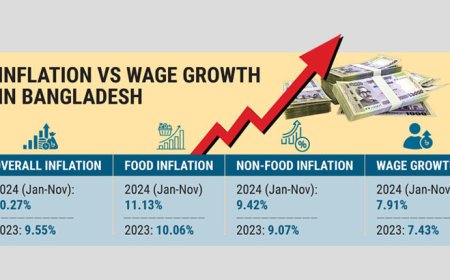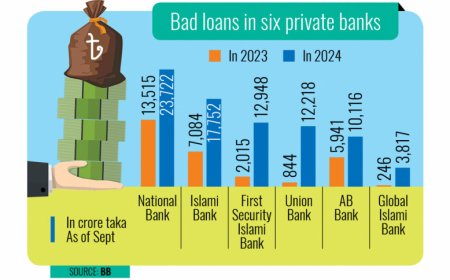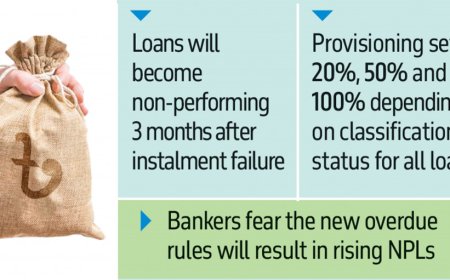Following Trump’s victory, Bangladesh has seen an increase in investment inquiries from China
Chinese entrepreneurs are increasingly exploring opportunities with Bangladeshi businesses for factory relocations, joint ventures, and new investments, anticipating that the Trump administration might impose higher tariffs on their exports to the U.S.

Chinese entrepreneurs are increasingly exploring factory relocation, joint ventures, and new investments in Bangladesh, partly in anticipation of potential tariff increases on Chinese exports to the U.S. under the Trump administration. They are also interested in Bangladesh as a future compliance-friendly location, considering the EU’s corporate sustainability due diligence directive that will apply to Bangladesh starting in 2026, aiming to ensure sustainable business practices.
Bangladesh's appeal is further boosted by its reputation for environmental and workplace safety certifications, particularly in sectors such as leather, man-made fiber, textiles, and garments. Local business leaders report that similar waves of investment interest from China occurred during Trump’s first term but were disrupted by delays in tariff policy implementation and the COVID-19 pandemic.
Chinese investment in Bangladesh has fluctuated, peaking at $1.03 billion in FY18, then declining sharply during the pandemic and gradually recovering. Bangladeshi exporters benefit from a 15.62% average duty rate on exports to the U.S., still far lower than the 25% imposed on Chinese goods. Additionally, Bangladesh enjoys duty-free access to Chinese markets, giving Chinese businesses established in Bangladesh a price advantage for re-exports back to China. With Trump’s recent statement that tariffs on Chinese goods could rise as high as 60%, Chinese manufacturers face further competitiveness challenges in the U.S. market.
Bangladesh’s share in the global garment trade has risen from 5% to nearly 8% over the past five years, owing to its high number of environmentally certified factories. The country now holds the second position globally after China. According to Khandoker Rafiqul Islam, former president of the BGMEA, this positive reputation has led to a surge in Chinese interest, particularly in acquiring struggling garment factories, though such acquisitions may not immediately boost exports.
Other sectors are also seeing interest. A Bangladeshi leather goods exporter reported recent inquiries from Chinese manufacturers interested in joint ventures or direct investments. However, they note that sustained Chinese investment may hinge on Bangladesh's political stability.
Md Anwar Hossain of the Export Promotion Bureau noted a daily increase in inquiries from Chinese investors, especially following Trump’s election victory. They also seek alternatives to avoid future compliance costs associated with the EU’s directive, which will affect them in Bangladesh only from 2026.
A senior official from the Bangladesh Investment Development Authority noted that, while inquiries remain consistent, U.S. foreign policy stability might temper the immediate impact of Trump’s election. Mohd Khorshed Alam, president of the Bangladesh China Chambers of Commerce and Industry, estimated that a clearer picture of Chinese investment trends will emerge within five to six months as Chinese investors assess Bangladesh’s political and business landscape before fully committing.
What's Your Reaction?





















































































